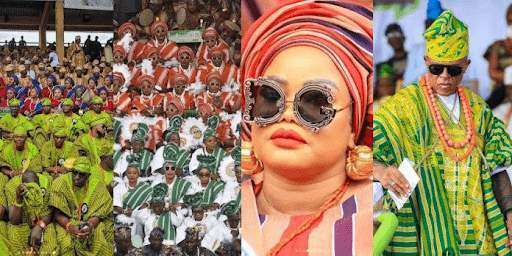Once a year, the town of Ijebu-Ode in Nigeria’s Ogun State bursts into colour and jubilation during the Ojude Oba Festival, a spectacular cultural celebration that brings together the Ijebu people and their well-wishers from across the globe. Held a few days after Eid al-Kabir (Ileya), the event blends history, religion, fashion, and festivity into a truly unforgettable experience.
As Ojude Oba 2025 begins, here are 10 fascinating things you should know about this enduring symbol of Yoruba heritage:
1. A Royal Tribute to the Awujale
The name Ojude Oba translates to “the king’s forecourt.” The festival is essentially a colourful tribute to the Awujale of Ijebuland, the paramount traditional ruler of the Ijebu people. Attendees—including age-grade groups, community leaders, and public figures—gather at the palace to show respect and loyalty to the monarch.
2. Celebrated After Eid al-Kabir
The timing of Ojude Oba is directly tied to the Islamic calendar. It is observed annually on the third day after Eid al-Adha, following the sighting of the crescent moon. This year’s festival is expected to take place in line with that religious schedule.
3. Over a Century of Legacy
Ojude Oba boasts more than 100 years of tradition. One widely accepted origin story credits Balogun Kuku, a wealthy Muslim convert in Ijebu, with initiating the event by visiting the king after Eid prayers. Another version recalls Imam Tunwatoba, who led fellow Muslims to express gratitude to Oba Fidipote for allowing Islamic worship in the kingdom.
4. A Magnet for Global Visitors
What began as a local religious homage has evolved into a global cultural event. Each year, the festival attracts hundreds of thousands, including people from across Nigeria’s regions and the diaspora, making it a major highlight on the national cultural calendar.
5. Showcasing Regberegbe Culture
One of the most cherished elements of the festival is the participation of regberegbe, or age-grade groups. These groups compete in a lively and colourful parade, wearing coordinated outfits and showcasing dance steps, music, and cultural pride as they salute the king.
ALSO READ
6. A Showcase of Traditional Fashion
The festival has earned a reputation as a runway for Yoruba fashion. Participants often appear in bespoke attires made from traditional fabrics like aso-oke, adire, and sanyan, reflecting both status and creativity. Designers and tailors work months in advance to meet demand.
7. An Emblem of Religious Coexistence
While rooted in Islam, Ojude Oba is open to all. Christians, traditional believers, and non-religious individuals all participate in the festival. At its core, the event promotes unity, gratitude, and communal peace, regardless of religious belief.
8. Historical and Martial Performances
Adding to the spectacle are the ceremonial warriors—descendants of traditional military leaders—who display swords, ride horses, and sometimes perform mock battles or gun salutes. These performances recall Ijebu’s rich pre-colonial history and martial heritage.
9. An Economic Booster for Ijebu-Ode
The festival gives a massive boost to the local economy. Hotels are booked solid, street vendors enjoy brisk sales, and transport services flourish. The event also draws sponsorship from major brands, increasing advertising opportunities and local employment.
10. Backed by the Palace and Private Sector
Ojude Oba is jointly powered by the Awujale’s support, contributions from the Ijebu community, and corporate sponsorships. Companies often sponsor age-grade groups, provide entertainment, and engage in philanthropic gestures during the celebrations.
